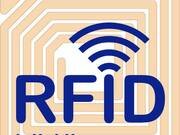Backscatter scan, courtesy TSA, leaves little about how it's hanging to the imagination.
Goldy at HorsesAss is having none of the full-body security scans starting up at SeaTac this September, claiming the invasion of privacy and safety concerns are just too much. (In March 2010, the TSA purchased 450 advanced imaging technology units with ARRA funds--at $130,000 to $170,000 each, says the Seattle Times.)
Regular surveillance cameras were enough to catch the TSA supervisor who stole $20,000 worth of valuables from checked luggage, but SeaTac, which has one of the more complex and inane security/performance art installations in the nation, has no problem with an invasive upgrade. (In fairness, they arbitrarily downgrade, too: "TSA Relaxes Restrictions for Cigarette Lighters and Breast Milk in Carry-On Luggage.")
Of the two types of imaging technology, millimeter wave and backscatter, it's the latter that has health professionals worried. Backscatter relies on low-dose x-rays just strong enough to "see through" clothes, but be reflected back by skin and soft tissue.
Health professionals are concerned that this kind of exposure directed at the skin could still have effects: "[T]here really is no threshold of low dose being OK. Any dose of X-rays produces some potential risk," David Agard, a biochemist and biophysicist at UCSF told NPR.
In an Orwellian touch of "sensitivity," the x-ray units employ a blurring algorithm while passengers are observed nude, and the TSA has instituted a complicated privacy procedure so that you will never actually see the officer checking you out nude:...
 Sure you have a firewall, but what about people photographing you through the window? Thanks to Flickr pool member mangpages!
Sure you have a firewall, but what about people photographing you through the window? Thanks to Flickr pool member mangpages!
It's like the Los Angeles Times only cares about Seattle if we're jumping off bridges or exposing ourselves to cybercrime. The story now is one of those virally successful PR efforts, based on computer crime busters Symantec rating 50 U.S. cities "using 24-million security sensors that monitor malicious-attack activity around the globe."
They counted up PC attacks, viruses and worms, and bot-infected computers used to send spam or transmit malware, checked the frequency of the attacks, and weighed behavior like connecting to public Wi-Fi shopping online without a secure connection.
Says Symantec, Seattle is top of the charts on almost every risk factor. But let's take this with a grain of salt. I asked Mark Rushing, systems analyst and open-source pusher at Orbis Lumen, for his take. Mark would have wanted to confirm that we're talking about actually illegal acts, rather than the sexy, all-purpose "cybercrime," and to know more about the role of false positives in "attacks" reported by virus software. But here are his initial responses.
So, cybercrime mecca Seattle: hooey or not hooey?
Probably a little of both. It's marketing. You're supposed to be scared and buy Norton/Symantec products. I notice that Fox News seems to have taken the largest interest in this story.
Is security even possible any more?
Complete security has never been, and will never be, possible. You can only take precautions. The more precautions you take, the more inconvenient and impractical your experiences can become. And interestingly, the more privacy you seem give up.
What are some basic precautions people just don't "get around to"?
The best protection is increasing your awareness. If you want to be safer, you must be aware of your environment. Learning is the best thing you can do. Alas, people prefer packaged conveniences, it seems, so they buy Norton/Symantec products, or buy AVG products (or use their free one). But this lets them observe all you and your computer is doing.
Better to use an operating system that is based upon best practices in the underlying science and technology, rather than predominantly marketing forces. Your conveniences always come at a cost, and those conveniences are rarely the best (and often not even the simplest) way to do things.
And of course, don't use the same password for every site. Use unique, harder passwords for sites with access to your bank accounts. Don't install software from places you do not know or trust. Etc., etc....
One day in seventh grade, I was waiting for the #14 bus across from Washington Middle School when three teenage gang members approached this kid in my class. One gang member, who was wearing brass knuckles, suddenly punched the kid in the temple, knocking him cold.
A few teachers came out to check on the kid, who soon came to and staggered down the alley leading to Odessa Brown Childrens' Clinic, vowing revenge. No Metro security guards were there. No hidden cameras caught the scene. And so KING-5 didn't cover it. The Seattle Times was likewise silent.
Which is why you haven't heard about that beating until now, unlike that of a teenage girl in the bus tunnel, which occurred in the presence of Metro security people who did nothing to stop it, and a surveillance camera which caught the whole episode on tape. That sickening beating has sparked a fresh round of city-wide Metro-targeted outrage.
But consider this--if Metro hadn't deployed security to the bus tunnel, would a fight between teenagers even be a story? If Metro didn't have video surveillance, would the TV news be reporting it? The bad publicity Metro's getting stems from the agency's attempt to do the right thing....
On Monday, I got a call from the bank that issued me a credit card six years ago. The woman on the other end of the line asked me to call back using the number on the back of the card for security purposes.
When I called back, I was directed to the fraud department, where the same woman who had just called me answered the phone.
“Hello,” said the woman on the line. “Have you made any purchases in Florida today?” I said I hadn’t used the card at all in months, not since I was in Florida last June while on vacation. The woman said several thousand dollars had been charged, and declined, at a Ross in Fort Myers.
It turns out that my card information was stolen from my card’s embedded radio-frequency signal, the technology that allows it to be swiped over scanner without inputting a code.
That’s right. My credit card information was stolen from my wallet while it was in my pocket.
If you have a credit card that was issued in the past year or two, pull it out and...


Most Recent Comments